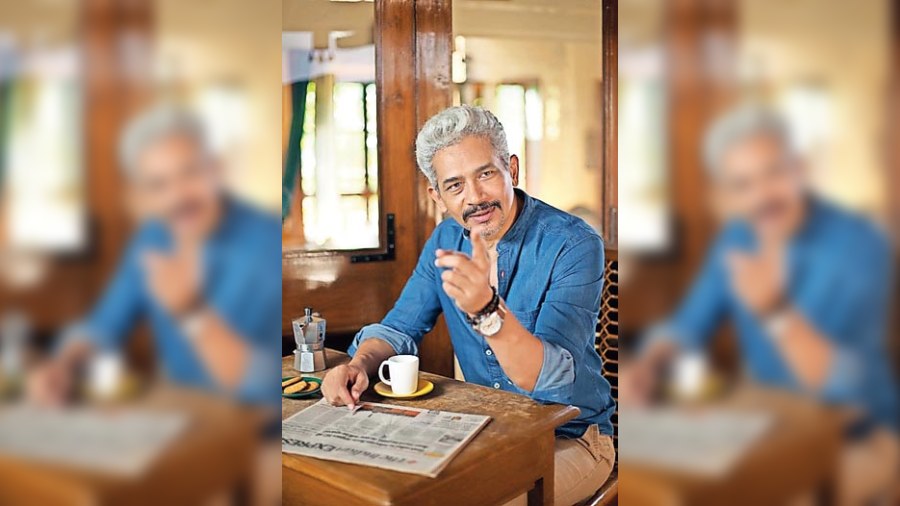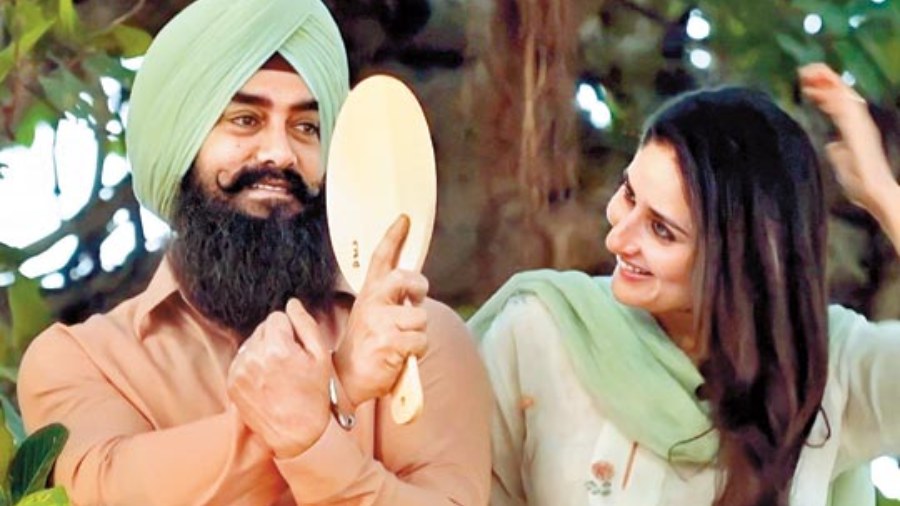Come August 11 and actor Atul Kulkarni will have a different kind of a Friday — the much-awaited Laal Singh Chaddha, his debut film as a writer, releases on that day. The official adaptation of Tom Hanks’s seminal 1994 film Forrest Gump — that won six Academy Awards, including Best Actor for Hanks — with Aamir Khan in the lead role, has been a passion project that Atul has lived with for 10 years.
The Telegraph chatted with Atul on why he wanted to adapt Forrest Gump into a ‘desi family film’, the Laal Singh Chaddha experience and Aamir as a friend and collaborator.
You have had many Fridays as an actor. How does it feel counting down to your first Friday as a writer?
Over the last 20-25 years, I have become used to this kind of feeling. The feeling of making something and then waiting for it to release is one I am very familiar with.
But does Laal Singh Chaddha bring on a greater sense of responsibility? Do you feel more ownership over the film than you would feel if you were just an actor in it?
I have always been of the opinion that a film cannot be made without a team. Every person working in a film is important. It’s like football... it’s a team sport, it’s not a one-person game. As far as ownership is concerned, the feeling is absolutely the same as it is for my other films. You may be doing the lead role or a small part or you may be in some other department of film-making, but a film is a film. It is made with a lot of pain and a lot of money is spent.
What are your earliest memories of watching Forrest Gump and what aspects of it struck you enough to want to adapt it?
I don’t remember when I saw it for the first time, but I do remember that I watched it multiple times, even before attempting the adaptation. The adaptation was, of course, purely for Aamir (Khan) because we had a talk about Forrest Gump and then the next day, I rewatched the film and I thought that it could be adapted completely into the Indian context. I started noting down some points and eventually, I decided to attempt a script and I started writing it.
It kind of started as an exercise for me, but it turned out to be quite a good experience eventually. Aamir also loved it and then the entire process of getting all the permissions (from the original film’s producers) started. That took a lot of time... around 10 years or so. So yes, it’s been a long, long, long process (laughs).
Considering you have lived with Laal Singh Chaddha for a decade, were there any moments when you felt that the film wouldn’t come through?
When you work with Aamir, such thoughts don’t come into your head (laughs). He was extremely persistent and relentless as far as this film is concerned. I always knew that he is going to come through. And that’s what happened.
Frankly, I was doing my acting work all the time, so I didn’t feel any pressure about the delay of Laal Singh Chaddha. Writing is not my profession as such. More than a writer, I call myself an expresser... I write only when I feel like expressing something. Not only films, I write articles in newspapers, and even when I write on social media, it’s only when I want to express something. That is exactly what happened in the case of Laal Singh Chaddha. I just started writing... I never even knew if I would complete it. I need a very strong instinct and sense of purpose and a desire to express in order to be able to write.

Atul Kulkarni
Aamir’s reputation as a perfectionist precedes him. He famously rejected six drafts of Lagaan before okaying the seventh. Were you two always on the same page?
I don’t believe that creative brains should always be on the same page... then we will be making very boring stuff. Unfortunately, discussions are always made into disputes because disputes make news, not discussions (laughs). No creative process can exist without discussions, especially something which falls under the category of collective art... and cinema is collective art. Of course there were discussions. Aamir has this kind of openness of reading out the script to many people, he even shows his films to many people after the final edit. He takes down notes, there are many discussions. That, of course, happened even with Laal Singh Chaddha.
It’s evident in the trailer that this is a very desi adaptation of the Forrest Gump story. What were the challenges of localising the film and yet keeping its emotions universal?
This is a completely desi, family film. It’s an independent script. When people watch the film, they will know what I am talking about.
Writing every word was challenging... it is not at all an easy job. But I think we have been quite successful in making this a very Indian film.
What are your thoughts on Aamir as a collaborator? You have also acted with him in Rang De Basanti...
We have known each other for the last 16-17 years. Rang De Basanti came out in 2006, and we knew each other from two years before that. I know him more as a friend. We may have only worked as actors on that one film, but we had always kept in touch. We have met multiple times even before Laal Singh Chaddha.... I have always been aware of the kind of work he’s been doing. I have been involved with his Paani Foundation right from the beginning.
I know him as a person and friend more. He’s very unique. The kind of temperament, the kind of openness that he has, the open mind and the open ear that he has.... He may be sitting with anyone and that person may be telling him anything, but the way he listens is something we can all learn from. Because we know each other so well as people, there was no difference in collaborating for a film or discussing things otherwise. Working on this film has been an extension of our friendship.
Will we see you writing more scripts now?
I am not a writer, my profession is acting. It’s always going to be acting, mainly.
As an actor, what still keeps you so motivated?
It’s always the script that has motivated me. It’s always about the story being told. If that’s strong enough, the rest of the things fall in place. It’s the story that compels you to make a film, market a film and even live with the film beyond its release.
I think I have always been fortunate to be at the right place at the right time. I started off with films like Hey Ram and Chandni Bar. Chandni Bar was much, much ahead of its time. It was a dark film frontlined by a woman... it was unlike anything that was being made at that time, and it started the era of those kinds of films. I have always been lucky to get good films.
Now, the formats of consuming entertainment have changed and because the demand is high, the quantity has increased and hence there are more possibilities for an actor. And again, I think I am fortunate that I am getting good work.
